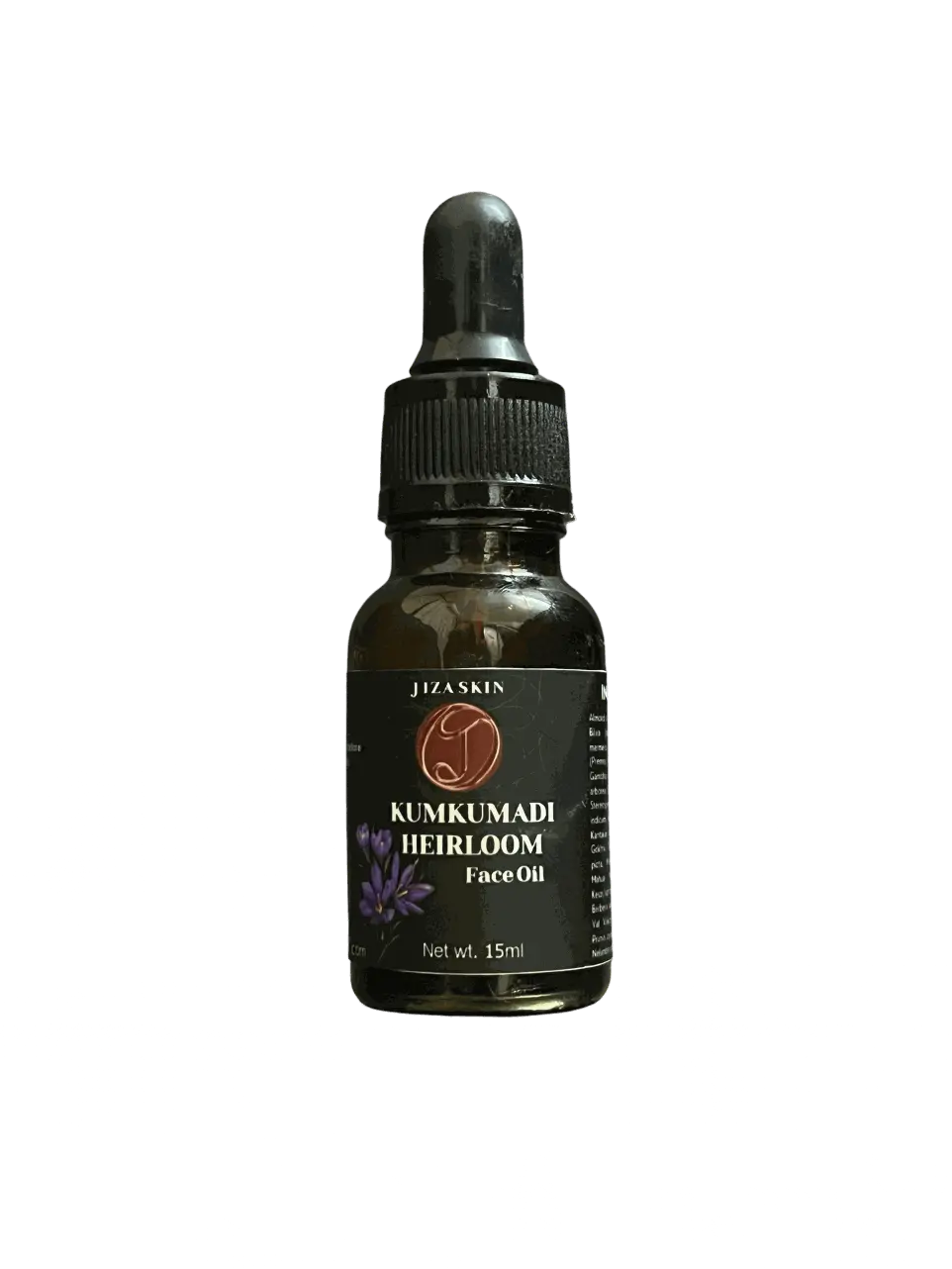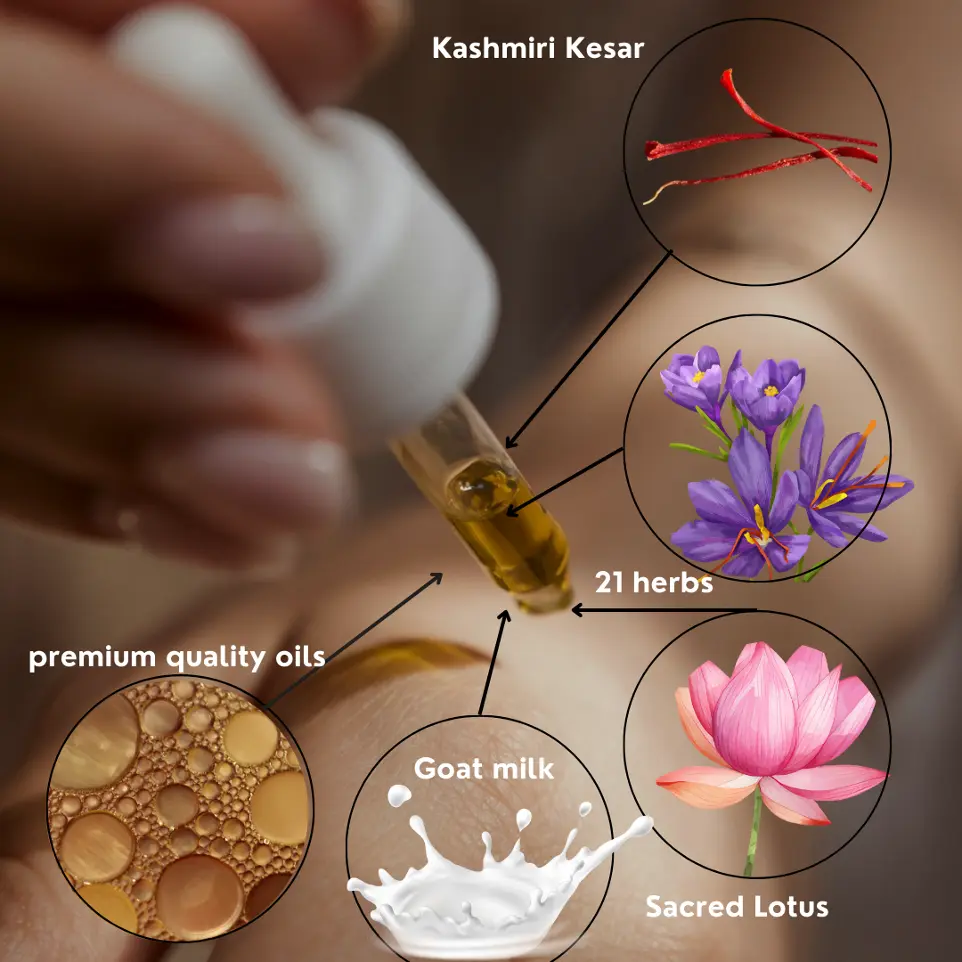When it comes to skincare, the debate between natural and synthetic ingredients often sparks passionate opinions. On one hand, natural skincare is seen as the more "pure" and "holistic" choice, while on the other, synthetic ingredients are often viewed with suspicion. But is one really better than the other? Or is the truth somewhere in the middle?
In today's world, many people are caught in the trap of focusing on quick fixes instead of adopting a truly healthy lifestyle. It’s common to see individuals spending a fortune on serums and synthetic acids, hoping for flawless skin, while overlooking the importance of healthy eating, exercise, and hydration.
They might slather on products like niacinamide or glycolic acid, convinced that these will solve their skin problems, but the truth is, these products only address the symptoms, not the root cause. Ironically, some people with naturally normal skin, with no underlying skin issues, have jumped on the bandwagon of using potent acid actives and complex serums, thinking they’re needed for flawless skin. This is part of the skincare scam — the belief that more is always better. In reality, applying these actives regularly can harm the skin barrier and lead to irritation or long-term damage, especially when the body’s internal health isn’t properly nourished
The Power of Natural Ingredients
Natural skincare is all about harnessing the power of plants, minerals, and other naturally occurring substances. Many people gravitate toward these products because they believe they're safer and gentler on the skin. Ingredients like aloe vera, rosehip oil, and chamomile extract have antioxidant and anti-inflammatory properties that can help heal and calm the skin. There’s no denying the appeal of nature’s beauty solutions — from the soothing scent of lavender to the nourishing effects of coconut oil.
However, natural ingredients also come with their own set of challenges. One of the biggest issues is the potential for contamination or inconsistent quality. Since natural ingredients are often subject to variations in weather, soil quality, and harvesting methods, their potency can vary from batch to batch. Plus, many natural products have a shorter shelf life, which means they need preservatives to prevent bacteria from growing — and this is where the controversy often lies.
Synthetic Ingredients: Safety, Innovation, and Eco-Friendliness
Manmade or synthetic ingredients, on the other hand, undergo extensive testing and regulation to ensure they’re safe for use. In the United States, organizations like the FDA and the European Union establish strict guidelines for testing skincare ingredients, ensuring they meet safety standards before hitting the market.
That being said, synthetic ingredients are not without their drawbacks. While they’re carefully regulated, some individuals with sensitive skin may still experience reactions. The Clean Beauty Movement, which emphasizes avoiding synthetic ingredients, often paints all synthetics with the same brush, ignoring the fact that many of these manmade compounds are thoroughly tested and can be safe for most people.
A key advantage of synthetic ingredients is their reliability. Unlike natural ingredients, which can vary from batch to batch, synthetics are formulated to be consistent. One prime example is synthetic fragrances. Natural scents like sandalwood or rosewood often require extensive plant harvesting, which can contribute to environmental issues like deforestation and ecosystem disruption. In contrast, synthetic fragrances are made in labs, which reduces their environmental impact significantly.
Moreover, synthetic fragrances offer a level of creativity and range that natural fragrances simply cannot match. Perfume makers can create almost any scent imaginable, from fresh-cut grass to fantasy notes like cotton candy, without worrying about limited resources. Plus, these fragrances can be formulated with lower levels of allergens, making them a safer option for those with sensitivities
The Misleading "Natural = Safer" Narrative
There’s an idea that’s been gaining traction, particularly in the wellness and clean beauty industries, that natural ingredients are inherently safer than synthetic ones. But the reality is much more complex. While natural ingredients may seem gentler at first glance, they are not automatically free of risks. Essential oils, for example, can be highly irritating or even toxic to some people. What’s more, when you rely exclusively on natural ingredients, you might be unknowingly introducing bacteria into your skincare products, as many natural formulations lack preservatives.
It’s crucial to remember that science should be the deciding factor when evaluating ingredient safety. Both natural and synthetic ingredients can be beneficial and effective — it’s all about understanding the research, testing, and safety profiles of each ingredient. Many synthetic ingredients are carefully designed to replicate the benefits of natural ones, while also providing better stability and shelf life. And don’t forget, preservatives (whether natural or synthetic) are necessary to keep products safe for use, preventing contamination that could cause skin issues or infections.
In the end, the best skincare routine isn’t one that exclusively relies on either natural or synthetic products or something marketed to you. Instead, it’s about using the right products, living a balanced lifestyle, and making informed choices based on scientific research. So, next time you’re debating between the natural and synthetic options on the shelf, remember: it’s not about choosing sides, it’s about what works for you and your skin and remember in skincare- Less is always more, and enough.

